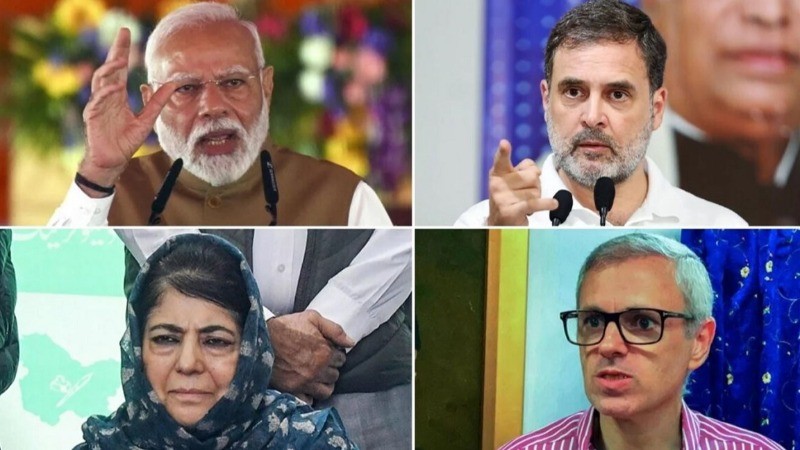
The early vote count in Jammu and Kashmir indicates a significant lead for the National Conference (NC)-Congress alliance. This election is seen as a crucial test for key political figures, including Prime Minister Narendra Modi, Congress leader Rahul Gandhi, NC’s Omar Abdullah, and PDP’s Iltija Mufti. The results could have a lasting impact on both national and regional political dynamics, especially in the post-Article 370 era.
Political Stakes in Jammu and Kashmir
This election holds immense importance for several prominent political leaders. The early trends suggest a strong showing for the NC-Congress alliance in the Jammu and Kashmir Assembly elections, with expectations of a majority.
The elections, held between September 18 and October 1, 2024, come nearly a decade after the last polls. Over the years, the political landscape of Jammu and Kashmir has been dominated by regional dynasties like the Abdullahs and the Muftis, alongside national parties such as the Bharatiya Janata Party (BJP) and Congress, all competing for influence. These results are being closely scrutinized to understand their implications for the future.
Impact on Prime Minister Modi and the BJP
For Prime Minister Modi, this election serves as both a challenge and an opportunity. The abrogation of Article 370 in 2019 by the BJP government was a landmark event that ended Jammu and Kashmir’s special status, turning it into two Union Territories. The BJP has positioned this move as a step toward national integration and security.
The election results will reveal whether the people of Jammu and Kashmir support the BJP’s narrative of development and security or if local issues overshadow the national rhetoric. A strong performance by the BJP could affirm Modi’s leadership and his commitment to fulfilling promises. Conversely, poor results could fuel criticism, both within India and internationally, suggesting that the move hasn’t delivered the expected benefits.
Rahul Gandhi and Congress’ Outlook
For Rahul Gandhi and Congress, these elections are a critical indicator of the party’s ability to regain lost ground in the region. Congress, traditionally having a presence in Jammu and Kashmir, has seen its influence wane in recent years. Rahul Gandhi has consistently opposed the abrogation of Article 370, aligning himself with the local sentiment that viewed the move with skepticism.
A successful outcome for Congress could bolster Gandhi’s leadership credentials at the national level ahead of the general elections, while a disappointing result could cast doubts over his ability to revive Congress in key regions. For Congress, this election is more than just about winning seats—it's about re-establishing relevance in Jammu and Kashmir’s political sphere.
The Abdullahs and National Conference’s Future
For the Abdullah family, the elections are a test of their enduring influence in Jammu and Kashmir. Led by Farooq Abdullah and his son Omar Abdullah, the National Conference has been a dominant force in the region's politics. They have vocally opposed the BJP’s stance on Article 370 and have called for the restoration of Jammu and Kashmir’s statehood.
A strong performance by NC would reaffirm the Abdullah family’s significance in regional politics and lend credibility to their call for unity among regional parties against the BJP. Omar Abdullah, in particular, may have his sights set on the chief ministerial role if his party performs well. However, a weak result could indicate a shift in public sentiment away from established power structures.
Mufti Family and the Future of PDP
Mehbooba Mufti and the People's Democratic Party (PDP) are also at a crossroads. This election marks the debut of her daughter, Iltija Mufti, who is running from their stronghold in Bijbehara, South Kashmir. Once an ally of the BJP in a coalition government, the PDP has since distanced itself from the national party and criticized the abrogation of Article 370.
The PDP’s popularity has dwindled since the breakup of the coalition, and this election will determine whether the Mufti family can regain its influence. For Mehbooba Mufti, a favorable result could restore the PDP’s political power, while a poor performance might signal the end of the party’s dominance in Jammu and Kashmir.
The Jammu and Kashmir election results are not just a regional affair—they hold the potential to reshape the political fortunes of both national and regional players. For figures like Prime Minister Modi, Rahul Gandhi, the Abdullahs, and the Muftis, much is at stake as the region prepares for a new political era.